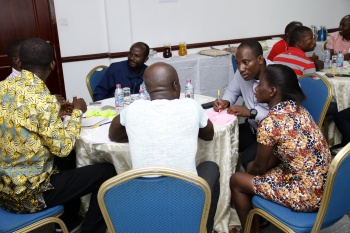CTVSD2/OARAS/Process and roles
From WikiEducator
Unless you are experienced learning designer and a practitioner of the vocation you are designing the assessments for, you will need a small team to complement your expertise. To ensure assessment is authentic, relevant and properly assesses the outcomes of the course in a way that is practical to implement at the workplace or online, you will need people with the following skills and expertise:
- a learning designer who will bring expertise in selecting the assessment tools appropriate for a workplace or online assessment, write clear instructions and assessment rubrics
- a subject matter expert or industry practitioner who will bring the in depth knowledge and expertise of the vocation, the industry and the workplace context. She/he will help with determining the assessment tasks and conditions, that will best asses the course outcomes and enable the collection of evidence to demonstrate competence
- an assessor or a representative of the assessment authority who will bring understanding of how performance criteria and assessment requirements need to be met, if that is not already specified in the qualification document.
You may not need different people for each of the roles if some people bring skills and experience and are able to fulfill more than one role. We also recommend you involve some of your colleagues in the process to review and provide feedback on your work and assure that you have met the assessment principles of:
- validity
- reliability
- fairness
- flexibility and
- efficiency.
The assessment principles are explained in the learning resource section of the course principles of assessment. We recommend that you share and discuss them with the people you are working with to ensure you have a shared understanding of what good assessment looks like and you all work towards meeting these principles.
